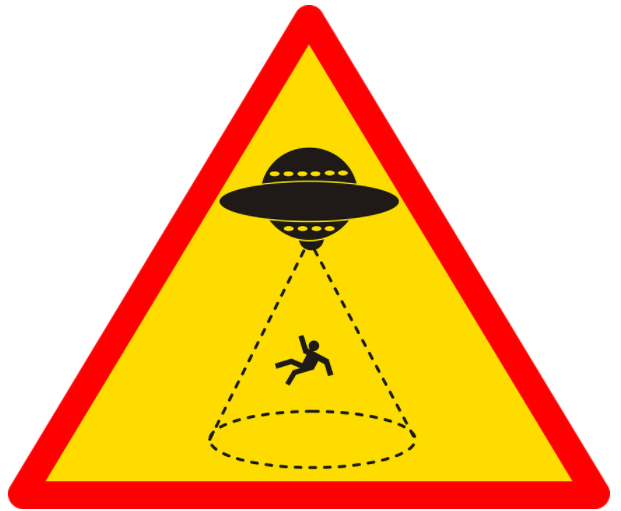Introduction
As of now, the only lifeforms we see in the universe are of Earth. Many people fancy the idea of extraterrestrial life as portrayed by the countless fantasy franchises that explore a universe filled with unique and distinct life. How exciting it would be, to find bacteria in the Martian soil, fish in the waters of Europa and intelligent life in a neighboring solar system. However, as enticing as this seems, the discovery of such things would practically define our demise.
Fermi Paradox
There are as many as 6 billion potentially habitable planets in the Milky Way galaxy alone. In this case, let’s say that a habitable planet is a planet in the goldilocks zone of a star which is a zone in which water can exist as a liquid. The exact criteria for life formation are unknown, but water is a critical factor for life. On Earth, where there is water, there is life. Returning to the topic, in addition, it has been estimated that the observable universe contains two trillion galaxies (as of 2016). Even more, Earth is not a very old planet relative to the age of the universe. The age of the universe is roughly 13.8 billion years while the age of the Earth is about 4.54 billion years. Humans achieved their modern form about 200,000 years ago. There was plenty of time for advanced civilizations to develop. Countless planets have the potential to nurture life and an abundance of time, but where is it? That is the Fermi Paradox. Some scientists believe that intelligent extraterrestrial life exist but just have not received our transmissions. Nothing in our universe travels faster than light. The speed of light is considered to be the fastest achievable speed. Even this light takes millions of years to travel to other planets. If there was an exoplanet 100 million light-years away with intelligent life peering at Earth with a telescope, they would see dinosaurs roaming the earth. Radio waves traveling significantly slower than light will take forever to reach the edge of the universe or galaxy alone. This is excluding the fact that radio signals weaken over a distance. But, it is even more unlikely for a civilization to exist at a level similar to us than aliens existing at all.
Great Filter
The Great Filter is an idea that is commonly used in conjunction with the Fermi Paradox to explain the supposed lack of life in the universe. If there is no life, despite the amount of potential life carrying planets, there must be something that is preventing that from happening. That is the Great Filter. The Great Filter is a probability threshold in the course of the development of life that is extremely high, making it virtually impossible to overcome. Regarding this Great Filter, there are 3 possible scenarios. The first is that the Great Filter is behind us and there are none ahead of us. This is the best-case scenario because then there would be nothing to prevent mankind from becoming an intergalactic species. The other two scenarios do not seem so bright. If the filter is in front of us, our demise is almost certain. No matter how much we struggle against it we will not pull through. The second scenario is that the Great Filter is behind and in front of us. Although we miraculously overcame the first filter, there is a 0% chance that we will overcome another. The third scenario is that the Great Filter is in front of us, regardless of the amount. The Great Filter could be anything in the course of development of life. The birth of a self-replicating chemical cycle? The evolution of a complex cell with compartmentalized functions? The development of a species with a fairly complex brain? Although it may seem simple, it is very unlikely that an organism would invest in intelligence as it does not help against a bear in a fistfight. This is also explained by the lack of evidence of intelligent species in the entirety of Terran history. These are just some potential filters that may be behind us. As examples for filters in front of us, it could be sentient robots, a lethal plague, out of control nanomachines (grey goo), or a runaway chain reaction in an ecosystem that renders the planet inhabitable once set in play.
We know that these filters are impossible to overcome as a fact because there is no life in the universe. From the amount of time life had to develop on these planets rule out the possibility of humans being the first sentient beings in the universe. Discovering all forms of life on other planets would be a horrifying discovery, as it ensures that humanity will never prevail. Although it may be disappointing to find out that we are truly alone in the universe, that is the best-case scenario.
[1] Greshko Michael. 2019. “Galaxies, explained”. National Geographic. https://www.nationalgeographic.com/science/space/universe/galaxies/. 08/02/20.
[2] Gary Stuart. 2016. “What is the Goldilocks Zone and why does it matter in the search for ET?”. NEWS. https://www.abc.net.au/news/science/2016-02-22/goldilocks-zones-habitable-zone-astrobiology-exoplanets/6907836. 08/02/20.
[3] 2018. “Why Alien Life Would be our Doom – The Great Filter”. Kurzgesagt. https://www.youtube.com/watch?v=UjtOGPJ0URM. 08/02/20.
